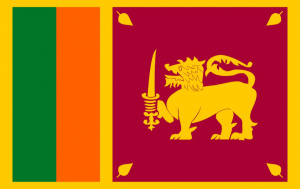Language/Sinhala/Vocabulary/Family
Hi Sinhala learners! 😊
In this lesson, we will learn the Sinhala vocabulary related to family members. Sinhala is a rich language, and family is an important aspect of Sri Lankan culture. So, it's crucial to learn the vocabulary related to family members to communicate effectively with Sinhala speakers. Let's get started!
Consider exploring these related pages after completing this lesson: Days of the week, Fruits, Days of the Week & Family and Relationships.
Family Members in Sinhala[edit | edit source]
In Sinhala, the word for family is "පවුලේ" (pawule). Here are some important family members in Sinhala:
| Sinhala | Pronunciation | English |
|---|---|---|
| මව් | mā | mother |
| පියා | piyā | father |
| පියතුමා | piyatumā | grandfather (father's side) |
| මාතෘකාව | māthikāva | grandmother (father's side) |
| මාත්රාව | māthrāva | grandfather (mother's side) |
| මාත්රා මහාංසය | māthrā mahānsaya | grandmother (mother's side) |
| පුතාට | puttāta | son |
| දියට | diyāta | daughter |
| පවුල් | pawul | family |
Complex family relationships[edit | edit source]
In Sinhala, there are different words to describe family relationships depending on the gender and age of the family member. For example:
- Older brother: මෞන් පුරාණියේ (mōn purāniye)
- Younger brother: පුරාණියේ (purāniye)
- Older sister: මානවියේ (mānawiyē)
- Younger sister: දෙවියේ (dewiyē)
These words are not used to refer to non-blood-related siblings, only to biological siblings.
Family Terms in Situations[edit | edit source]
Here are some Sinhala terms you may use while talking about family members in different situations:
- Family outing: පවුලෙන් කියෑලේදීම (pawulen kiyalēdīma)
- Family reunion: පවුලට යොමු කිරීම (pawulata yōmum kiriyma)
- Family trip: පවුල් දියගොනුව (pawul diyagōnuwa)
Now, let's see how to use these words in context.
Dialogue[edit | edit source]
Here's a conversation between two people where they discuss their families:
- Person 1: ඔබගේ අම්මා හොඳයිද? (Ōbagē ammā hōdaya? - Is your mother well?)
- Person 2: ඔව්, මහින්ද්රවේද? (Ōvā, mahindrawēda? - Yes, how about yours?)
- Person 1: මාතා මහාංසය හොඳියාවූ බව කියන්නේ නැහැ. (Māthā mahānsaya hōdīyāvū bawa kiyannē nā - I heard that your grandmother (mother's side) is doing well.)
- Person 2: ඔව්, කරුණාකර සෙනෙහි එක්කරපු යෑමට කැමතියි. (Ōvā, karunākara sēnehin ekkarapu yēmata kēmatiya - Yes, she's fit to go for a walk now)
Summary[edit | edit source]
In this lesson, we learned the Sinhala words for different family members and how to use them in context. Remember to practice speaking with a native speaker to master these words. Don't forget to check out Find native speakers and ask them any questions you may have about Sinhala language. You can also find more useful vocabulary words in the [Language/Sinhala/Vocabulary|Vocabulary] section.
Sources[edit | edit source]
Videos[edit | edit source]
Beginner Level (Vocabulary) | My Family | IELTS in Sinhala - YouTube[edit | edit source]
Names of Members of the Family in English with Sinhala ...[edit | edit source]
Learn Sinhala Language: 8 Family Members in Sinhala (+ free ...[edit | edit source]
Sinhala lesson 7 - Family members - YouTube[edit | edit source]
Other Lessons[edit | edit source]

